Labor power play caps a chaotic week in parliament
For all the grief caused by Andrew Giles, it was the Ed Husic challenge to Jim Chalmers that was of most interest to political insiders.
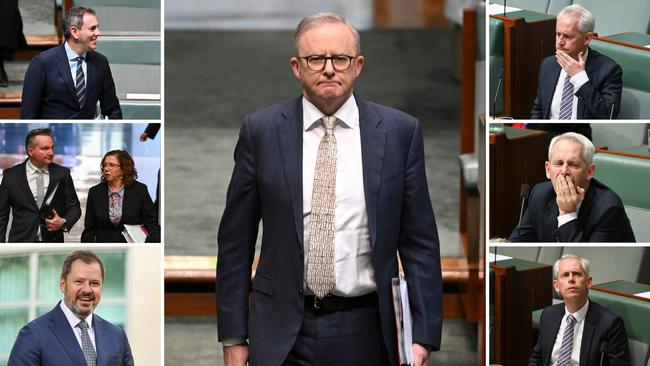
It is also a tale about a less obvious but growing anxiety among some Labor MPs about political and policy direction, a realisation about the likelihood of going into minority government and a revelation of subterranean policy and demographic differences.
Almost incidentally, it is also a tale about Peter Dutton’s political strategy and character.
But however the story finishes there can be no doubt that the first week of the autumn parliamentary session after the May 14 budget has already made a deep imprint on how the next few crucial months will play out politically.
Some of the effects from this week are immediate and obvious, but there are longer-term, less visible and arguably more important consequences for the Labor government, the Prime Minister’s leadership, economic direction and ultimately the next election.
The two ministers are, of course, Immigration Minister Andrew Giles, whose ineptitude has single-handedly shifted the focus away from the budget and on to Albanese, in political quicksand, and less obviously but perhaps more importantly Industry and Science Minister Ed Husic.
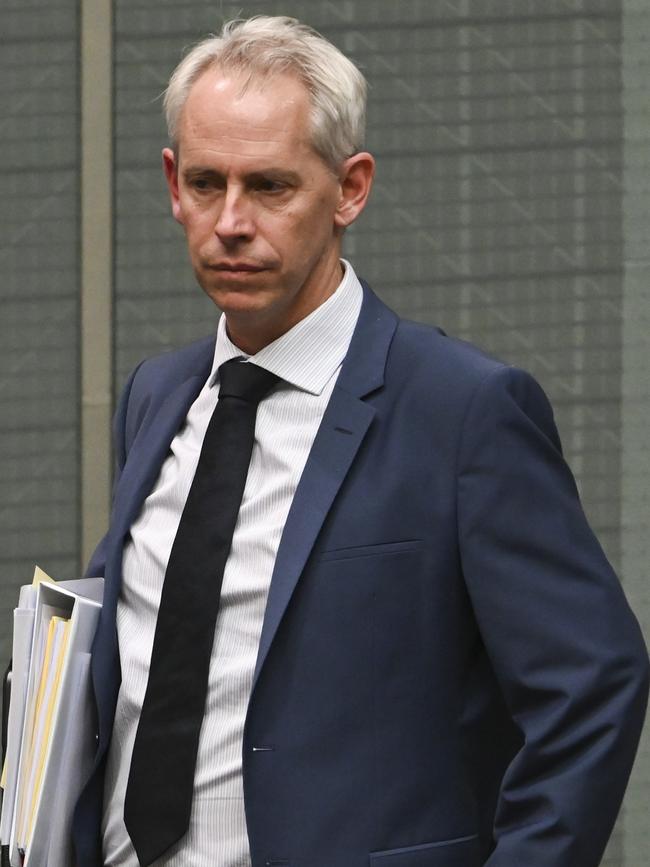
Giles and Husic were bracketed because for the entire week they were the only two ministers who were the subject of parliamentary questions from the Coalition.
Giles, or Albanese in his name, was the subject of all but one of those embarrassing questions, revealing the unravelling of his system of visas and deportations for criminals including rapists, murderers, drug dealers and pedophiles under his now infamous Direction 99, which made it easier for criminals to stay in the country because of “connections” to Australia.
Husic, although the question was directed to Jim Chalmers, was the subject of the only other opposition question because he had publicly called for a cut in the corporate tax rate to lift investment and so challenged the $23bn budget centrepiece of the Future Made in Australia agenda.
For all the grief Giles is causing the government, he was encouraged to defend himself and attack the Opposition Leader. He had Albanese’s strident backing as the Prime Minister tried to relieve pressure on his besieged minister by ordering a rewriting of the ministerial Direction 99 to give less emphasis to “connections with Australia” and provide for “common sense” decisions with community safety the top consideration.
When Dutton asked if the Prime Minister had full confidence in Giles as a minister, Albanese bluntly replied “Yes” and launched into an attack on the record of sex offenders and murderers granted visas when Dutton was immigration minister.
Yet despite an apparently minor incursion into questioning Labor’s policy of not cutting the corporate tax rate or providing industry-wide investment breaks, Husic was effectively slapped down and humiliated by the Treasurer, who would not entertain any hint of his colleague’s suggestion and declared it was unnecessary because the budget measures were already achieving the desired aim. Chalmers said: “A large proportion – indeed most – of the $23bn of the Future Made in Australia package that I announced … was about company tax reforms in the form of production tax credits.”
But for all the glossy words, dissembling, deflection and euphemisms, the behaviour of Labor MPs at the end of question time betrayed who had more support and encouragement among their colleagues.
Husic, who is allocated the end seat of the frontbench next to the aisle, despite a senior ministerial ranking, confidently stood in his place as MPs moved to their offices. He was immediately approached by smiling MPs and engaged in warm conversation with Infrastructure Minister Catherine King, who was followed by a jovial and animated Climate Change and Energy Minister Chris Bowen, who was then replaced by an equally animated Education Minister Jason Clare.
Chalmers, on his way out, circled past the chatting Husic and Clare without making eye contact and proceeded back to his office.
The next day Tasmanian Labor backbencher Brian Mitchell expressed support for Husic’s call, as did NSW MP Mike Freelander. While Chalmers was clearly displeased, Albanese obviously didn’t want another distraction and other frontbenchers didn’t think it was helpful; there was a clear sign of support from suburban and regional MPs for a different approach.
Husic, as a western Sydney suburban representative, like Bowen and Clare, has previously spoken out in defence of Labor values and people in suburban Australia in the name of taking advantage of the time the ALP is in government. Along with Tony Burke, also in western Sydney, all these ministers and Chalmers would have a stake in seeking to be a leader should Albanese fall or fail.
While Husic may be just rattling Chalmers’ cage it is clear there is a growing concern, particularly among MPs in suburban and regional areas, that economic policy is not going far enough on tax reform and that the politics are reflecting too much of a bias towards the agenda of inner-city Labor, Greens and teal independents.
As the MP for Chifley in Sydney, which has a large Muslim population, Husic was the first to speak out strongly on the issue of the Israel-Gaza conflict and during the Covid-19 pandemic, excoriating the Liberal NSW government for going soft on eastern Sydney while sending mounted police to western Sydney to enforce lockdowns.
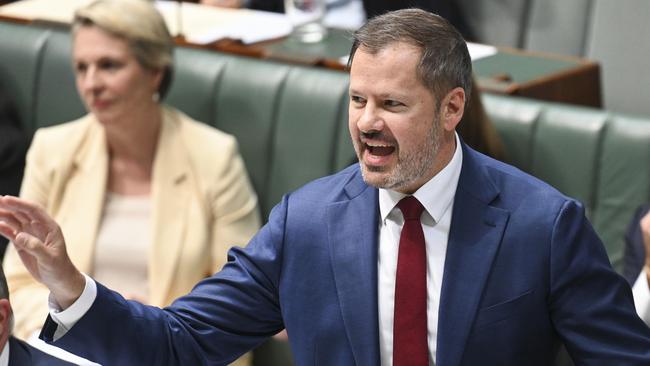
Husic’s forthright statements and call for more economic reform are gaining support, although the clear target this week in the Industry Minister’s calculated bid to get a wider tax debate started was the Treasurer, not the Prime Minister. Some frontbenchers fear this is a dangerous game to play so far out from an election in which Labor is assumed to be heading for minority government.
It should be remembered that a loss of majority government, as was the case with Julia Gillard in 2010, is a loss and especially so if Labor is forced into a Labor-Greens alliance burdened with an even stronger green agenda. It would be a loss that Albanese would have to own.
At this stage the significant point about Husic’s public questioning of the economic and reform agenda, limited as it was, is that it has disclosed previously out-of-sight tensions and concerns within the government about economic and political planning, which depends almost entirely on cutting inflation and getting an interest rate cut before Christmas and the election.
Given this week’s second consecutive rise in inflation to 3.6 per cent for April, against market expectations, there is reason for concern about the political and economic plan before an election that must be held between August this year and May next year.
Of course, for all the revelations behind Husic’s simple, honest answer about corporate tax and investment incentives there is no way the Industry Minister’s shot across the Treasurer’s bow could diminish the short-term effect of Giles’s ongoing immigration debacle.
As Giles survived question time on Thursday, thanks largely to the continued loyalty of Albanese and his determination not to give Dutton a scalp, his departure was largely lonely, although again Albanese encouraged him with a laugh and a wave.
King, who seems to offer a kind word to most, chatted briefly while others nodded and moved on until Defence Industry Minister Pat Conroy walked with him out of the chamber.
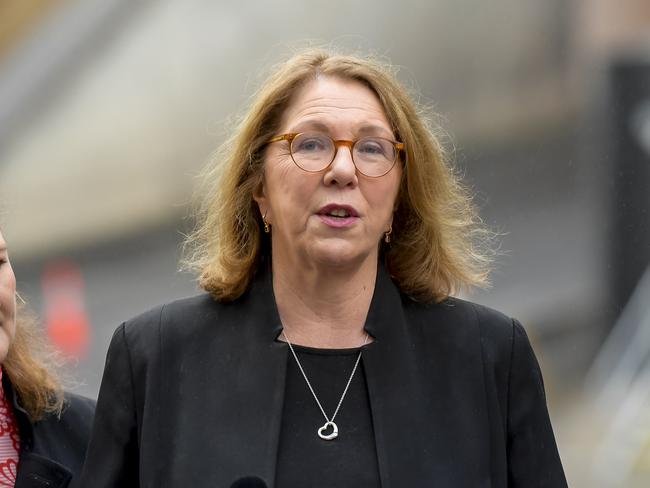
But, there was no denying the heartfelt anger towards Giles among the cabinet, some of whom feel his lack of preparedness within his portfolio, his inability to anticipate problems, a failure to explain his actions, his misplaced sense of importance, a refusal to admit a mistake and his obvious ineptitude in his portfolio is betraying Labor and Albanese. Last year, after the High Court’s decision led to the release of 149 hardened criminals including murderers, sex offenders and drug dealers, Giles used the court as an excuse, saying he wasn’t responsible for the release.
It was the first of many attempts to shift the blame as he refused to accept responsibility.
Even if the argument about the High Court were accepted there was no excuse for a minister’s lack of preparation for a potential loss in court, nor was there any excuse for his inability to make good his numerous parliamentary claims that the offenders would all be monitored and the community would be safe. They weren’t and the community certainly wasn’t.
But the recent revelations in The Australian and at Senate estimates committees of convicted criminals being given an easier path to regain visas and stay in Australia after shocking crimes against children and women and for many to reoffend demonstrate there is nowhere to hide for Giles.
In what was an act of appeasement for then New Zealand leader Jacinda Ardern and a confused attempt to get good publicity out of limited violence against women on International Women’s Day Giles introduced his own ministerial Direction 99.
In January last year Giles changed the ground rules for the Administrative Appeals Tribunal’s decision on visa applications and deportations and included an emphasis on the strength of the criminal’s connection to Australia through length of time, family and work.
What transpired was a travesty of the intention of making it more difficult for terrible abusers and killers of women to appeal against visa cancellation and deportation and corruption of the aim to stop sending New Zealand citizens back to their country of birth.
Giles’s defence – and Albanese’s – was to say there was no undermining of the principle of community safety in the directive, and to blame the tribunal for making wrong decisions and misinterpreting his directive while deflecting political heat on to Dutton.
But, in parliament on Wednesday Albanese, after months of muddling in the middle, dumped the directive and in so doing shredded all of Giles’s defences while admitting Directive 99 in fact did make it easier for criminals to remain in Australia and reoffend.
Community fear and concern about border protection and immigration are now climbing sharply in the community, understandably, and Albanese faces another tough week in parliament as Dutton continues to press for Giles’s sacking.
The Prime Minister has committed enormous capital to Giles and the longer he defends him the bigger the cost if he ultimately goes – unless Giles has a moment of self-awareness and considers he must save Albanese and his colleagues from further damage.


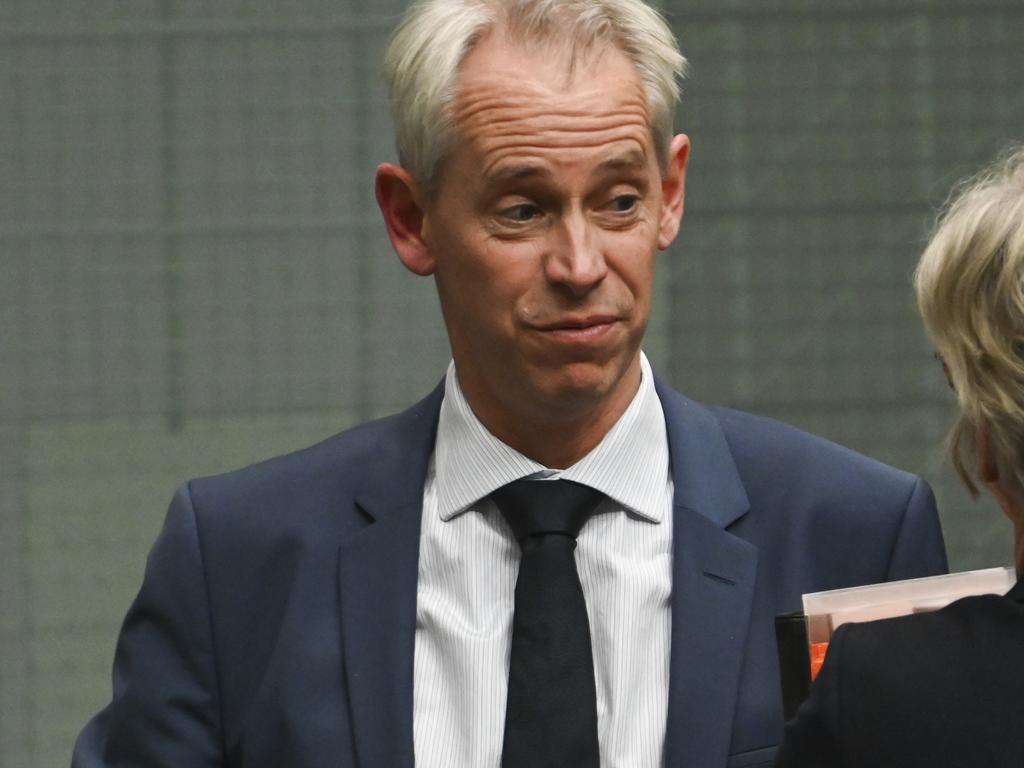

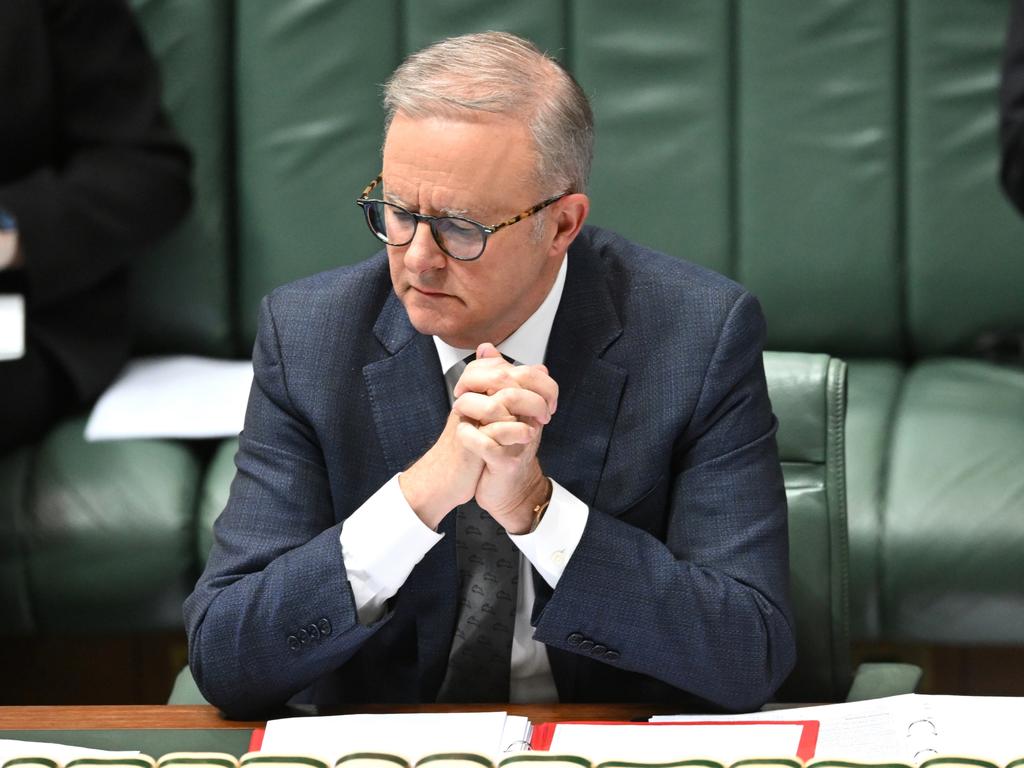

This is a tale of two ministers, a torrid parliamentary sitting week, questions about the judgment and obvious distraction of Anthony Albanese and damage being done to the Labor government.